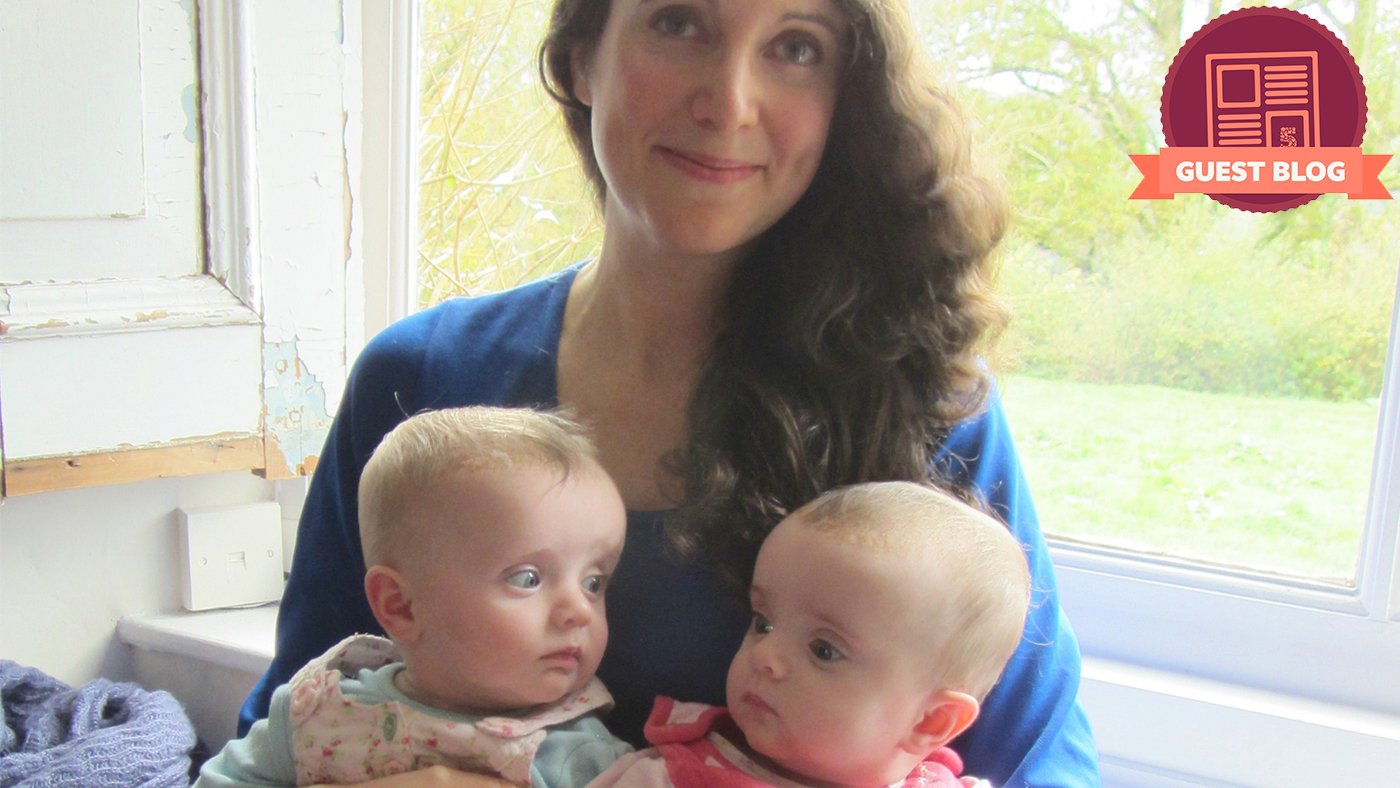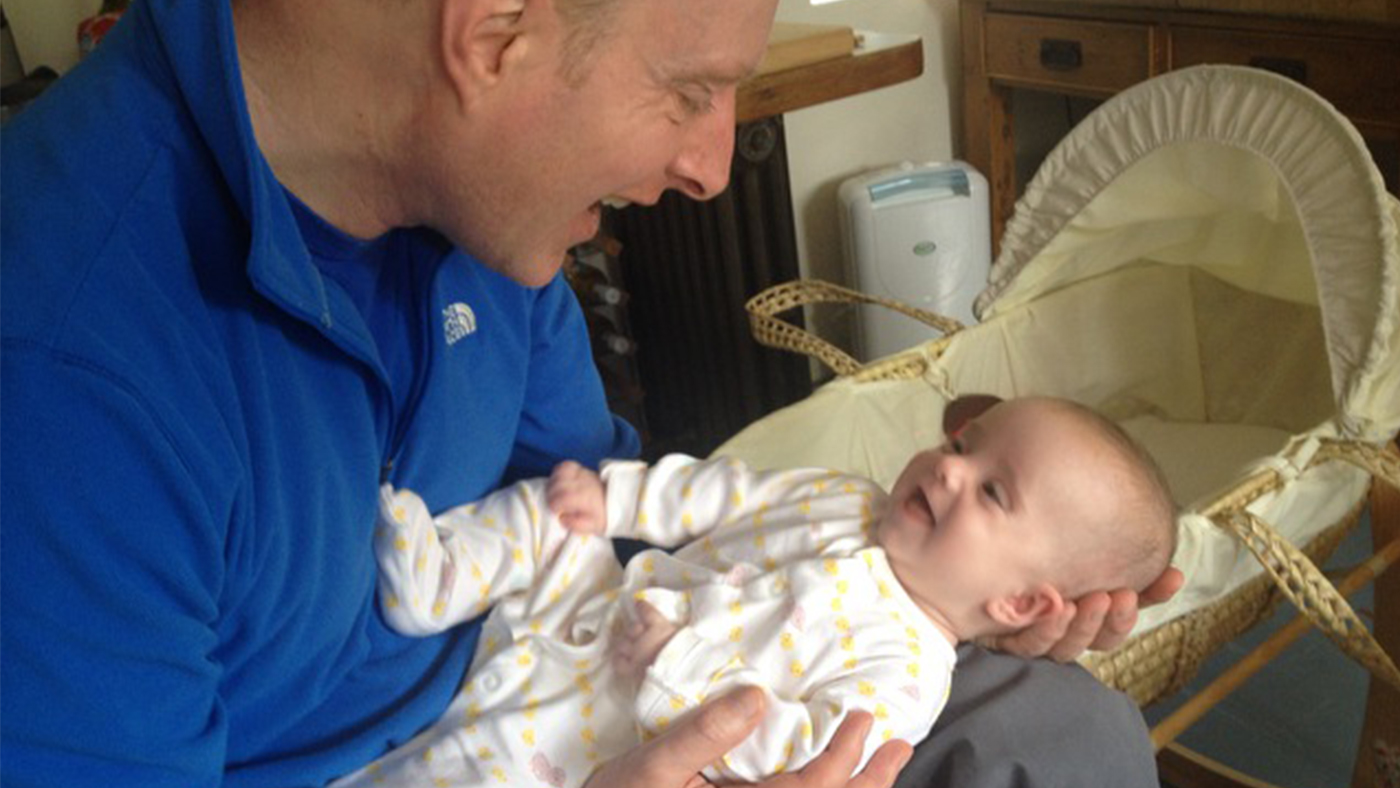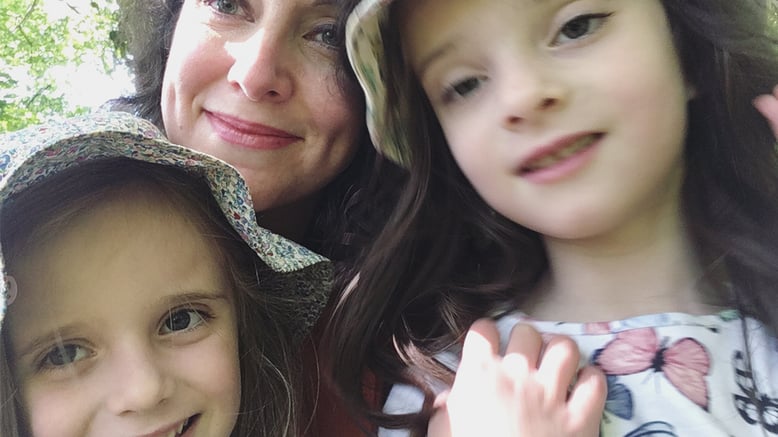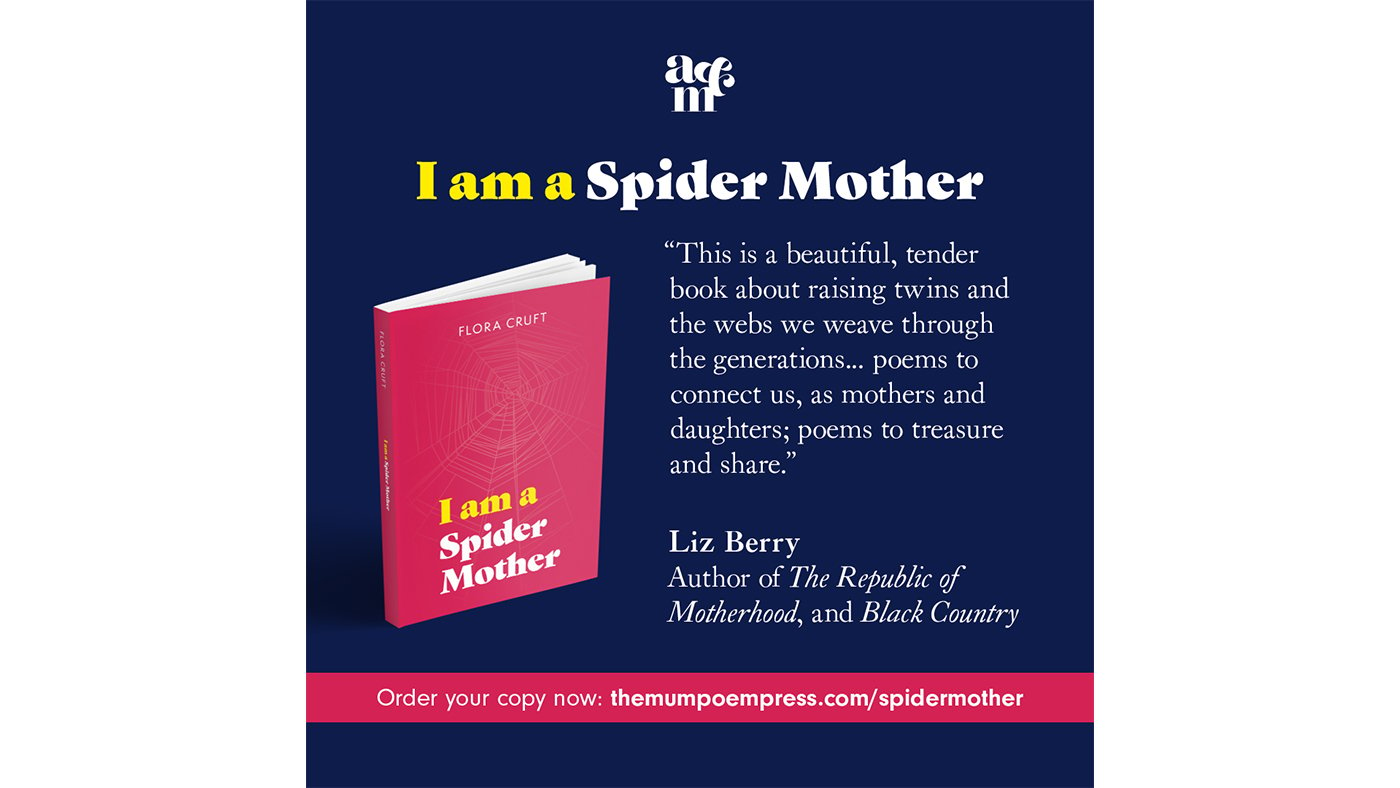Everything I wish I’d known about parenting twins before I had my own
- Parenting Tips,
- Parenting

Parenthood didn’t come quickly to me and my partner James. We rode a hard and winding road to conceive, littered over five years with medical checks, unexplained infertility, failed IUI and rounds of IVF, before I finally fell pregnant with our twin girls. During this time I comforted myself by becoming a student of fertility – I studied books about infertility and IVF, and learnt the benefits of healthy eating, acupuncture and mindfulness meditation. When I took the happy call from the IVF clinic that my third try had worked and I was pregnant with twins, I could hardly believe my ears. Not just one baby but two!
It was James who started to worry about how we’d manage caring for twins. I was in the blissful state of someone whose dream had finally come true, and I spent every afternoon listening to the hypnotic relaxation of pregnancy and birthing mindfulness CDs, which certainly helped me to remain grounded throughout a high-risk pregnancy and pre-eclamptic C-section birth. I’d occasionally look at “week by week” pregnancy books to see how my babies were growing, but could only find a few books that focused on the experience of parenting twins, and they tended to be medical in tone.
So it was a shock once our babies were born to discover just how great the challenges of twin babycare were, and how intense the joys were that accompanied it. Now that my daughters are seven, I’ve felt drawn to write about my early experiences of twin motherhood, and to pay tribute to the tireless work of mothers of multiples and single babies everywhere. This idea formed the seed from which my debut poetry book I am a Spider Mother was born.
As my daughters grow, I recognise myself growing with them, developing my understanding of how to mother my multiples, and what we parents need to give ourselves and each other to support our children.
Here’s what I wish I’d known about parenting twins before I had my own:
- Don’t expect your babies to fit around your life – but don’t give up what makes you “you” either. Like most mothers, life changed enormously for me when I had my daughters. Suddenly my time and my purpose were not my own – indeed, it was hard to tell sometimes who or what I was, apart from a babycare machine who staggered about the half-lit house, changing and feeding her twins every two hours. One way I held onto my sense of myself was to continue to do what I love. I used to play my favourite Leonard Cohen songs on my phone while I lay my daughters on the bed to be fed one after the other in the middle of the night (and I could swear Leonard’s voice had a hypnotic effect on them and helped them to sleep once they’d been fed). I wasn’t only doing it to soothe them as they cried out, impatient for their turn to be held by me; I was doing it to soothe myself, to help myself cope with the sadness of not being able to be breastfeed, and to remember the peace I’d felt when I used to listen to Cohen’s Hallelujah as a 21-year-old lying in the Jardin du Luxembourg in Paris, watching the clouds float by. Listening to what I loved connected me to my pre-baby self and gave me hope that I still had her in me, ready to bloom again in the years to come.
- Work as a team and pace yourselves. In order to maximise our (inevitably very limited) sleep, many of parents of multiples find it helps to take it in turns doing the babycare shifts in the night, and this can be achieved whether breastfeeding or not. One partner feeds the babies expressed or formula milk while the other sleeps for four hours, then they swap over. Forget about writing emails or tidying the house, just rest whenever you can. You’ll need it!
- Get Daddy involved. In many ways, fathers find themselves forced to become more involved with the babycare of twins than they would with one baby, because it’s impossible for a mother of newborn babies to manage entirely on her own. The fact that I needed James to place both babies safely onto me, or to help me bottle feed them when it became clear that I didn’t have enough milk to breastfeed, meant that he automatically became more invested and intimate with the babies from an earlier stage than he might have done if we’d had a single one.

- Keep a feeding journal. It helped us enormously to keep a journal in which we would note which baby had eaten when, and how much or from which boob, so as not to feed the same baby twice. When tired it’s surprisingly easy to do so, and leave the other baby accidentally unfed! It’s useful too when giving them medicine and generally tracking their feeding patterns and development.
- Look after number one (that’s you). Children need their parents, especially their mothers in the early months, there’s no getting away from that. But in order to retain a sense of self and sanity, we need ourselves too. And what can a mother give to her children when she has nothing left for herself? When it all feels too much, I’ve learnt to step back and ask myself what I need – it could be something as simple as taking a few deep breaths or a drink of water. Self-care can mean some physical exercise like yoga, but it can also mean a deeper psychological self-care that comes from attuning to one’s feelings, understanding one’s needs, and finding ways to fulfil them.
- Live in the here-and-now. Time is weird when you’re a parent. It drags one minute and flies the next. Something I wasn’t prepared for when I had my twin daughters was how boring it could be to attend to them all day, every day. In the early days, I noticed myself moving into a mental world of ‘what ifs’ and dreaming of the new freedoms that would open up for us when the children were older. Yet when I was able to be fully present with my daughters – and I found mindful breathing helped with this – I could suddenly feel waves of peace and fulfilment at being in their company.
- Reject guilt in favour of courage. ’Mother guilt’ is a hot phrase at the moment, and it’s clear that feeling guilty about not being a good enough parent can damage the mental health of mothers, and therefore their children too. It’s simply not always possible to manage to meet the needs of two babies at the same time. So how could we not feel guilty when we expect the impossible from ourselves?
The truth is that it’s OK to wing it and even make mistakes sometimes, your child can learn and grow from them. So when feelings of guilt strike, instead of taking it personally, and berating myself as a bad mother, I try to view my feelings of guilt as a sign that I’ve not acted in alignment with my values. If I see it like this, then I can ask myself how I would act differently next time, learn from the experience and forgive myself. Repeating positive affirmations to myself, such as, “I’m doing my best and that is enough,” has been another way to support myself and remind myself of my maternal strength and courage.
My central message to myself, my partner and my children is the same: that it’s OK to feel what we feel, our feelings are valid, and there are no ‘right’ or ‘wrong’ emotions. If we can acknowledge our feelings, and accept them neutrally, then they pass more quickly. At times, when I’ve shouted at my daughters or feel I’ve messed up, it helps to remind myself that those painful or difficult feelings will pass for all of us, and that there will be plenty more chances for us to make appreciative, happy, new feelings together.
-
You can love your children without loving parenting. I really wish that this wasn’t a secret. It’s normal to feel ambivalent about parenting, we don’t need to feel guilty about our mixed feelings. We can love our children without loving the act of parenting and all that it demands from us.

-
Ask for help. We can’t do it all, we can’t be it all, we’re only human. If we recognise that we have natural limitations, then we can accept that we need help from others. As a twin mum an important part of my self-care came from reaching out to family and friends for support. Sometimes I needed someone to come and sit with the babies while I had a shower, or took a nap; at other times I just needed to talk to someone about how difficult I was finding it. I still do. Twin baby groups and helplines such as the one run by Twins Trust are lifelines. It’s invaluable to make friends with other twin mums with babies of a similar age, to talk worries over with, moan and strategise together.
-
Happiness comes in moments. Much of mothering multiples, especially in the early days, involves practical, repetitive tasks. Try to notice and savour the moments when you can connect and enjoy being with your little ones, and lower your expectations of yourself and what you can achieve every day. In the early years of twin mothering, when I felt steamrollered by exhaustion, it helped to remind myself that just keeping my babies alive, fed and healthy was an enormous achievement. Now that my twin daughters are primary-aged children who fight one moment and adore each other the next, I try to celebrate the times when we enjoy each other’s company, and relish every cuddle and smile we can give to each other amid the busy chaos of daily life.
As the days, weeks, and months roll by, hold on to the recognition of your greatest achievement: you’re doing it, you’re raising twins.

Flora Cruft is a poet, psychotherapist and creativity coach in private practice.
Her debut poetry I am a Spider Mother, out now with The Mum Poem Press and available from Waterstones and all good bookstores, and has been named “one of the best new books of March 2022” by Stylist Magazine. She has an Instagram page @poet.therapist.baker in which she explores the intersections between mental health, maternity, creativity, poetry and nutritional psychology.
